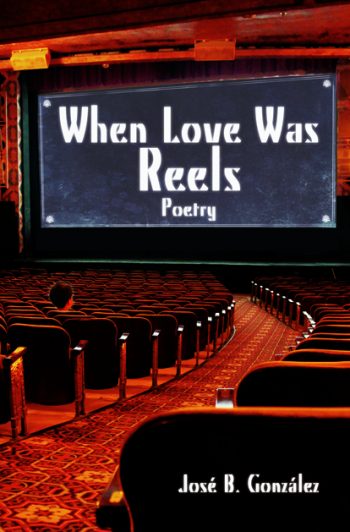When Love Was Reels: Poetry
$14.95
This touching poetry collection reflects on Salvadoran immigration
to the United States while remembering those left behind.
By José B. González
ISBN: 978-1-55885-850-3
Publication Date: September 30, 2017
Bind: Paperback
Pages: 87
Available
“My parents crossed when I started losing / teeth. My memory of them is broken, chipped / away.” Expressing his longing not to be forgotten like so many abandoned children in his native country, José B. González writes about a young boy’s life—first in El Salvador under the care of his grandmother and later living with his uncle in New York City—in this moving collection of narrative poems that uses iconic Latin American and Latino films as a guiding motif.
In each poem, famous movie and TV scenes featuring icons likes Pedro Infante and Cantinflas and modern stars such as Elizabeth Peña, Edward James Olmos and Esai Morales are juxtaposed with important moments in the boy’s life. In the first section, “Scenes from the Golden Age,” the boy watches classic Latin American films from the ‘30s, ‘40s and ‘50s at the cinema with his grandmother in El Salvador. In a 1948 film, he notes the difference between a maid, who “stands straight like the board on which she irons the family’s clothes,” and his grandmother, who “drags each leg like a broken broom,” her shoulders “heavy, like a stack of irons.” He imagines how once she must have been strong, raising her son, urging him to resist “the hungry promises of dreams.”
In the second section, “Scenes from El Norte,” he moves to New York, “where the screens / will not be black and white.” There his uncle leaves him in the apartment to watch TV and learn English. The boy writes to his grandmother, but doesn’t tell her “how / I swallow my screams / how I watch alone.” Later, he and his friends use spray cans to tag Brooklyn buildings, and that paint saves them, keeping them “from / believing / in blades, / guns and / knives.” Providing a tribute as well as a criticism of the way that film and television portray Latino lives, the collection is also notable for shedding light on the lives of so many youth raised by grandmothers in Latin America as the generation in-between went in search of the American Dream. These poems hauntingly illuminate Salvadoran immigration to the United States.









